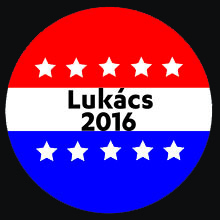Lukács 2016
Editor's Note
Contributors
Art and Society
Lukács describes his intellectual trajectory from 1910 - 1960.
Art as Misunderstanding
Works of art exist. How are they possible?
Novel, War and the Aporia of Totality: Lukács’s Theory of the Novel and Azuela’s Los de abajo
Although Los de abajo became foundational to Mexican national literature because it supported the continuation of the liberal policy of popular sovereignty, Sánchez Prado argues that an aporia in the construction of the text undoes the novel’s place in Mexican literature and links it to Lukács’s theory. Sánchez Prado reads The Theory of the Novel and Los de abajo as sibling texts, both responding to a fundamental break in modernity.
History and Class Consciousness as a Theory of the Novel
Ben Parker, arguing that Lukács uses “recognition” to mean anagnorisis rather than in the sense of acknowledgment, corrects a commonplace reading of History and Class Consciousness: not only to challenge assumptions about the “Reification and the Consciousness of the Proletariat” essay but also to derive a new theory of the novel from History and Class Consciousness.
Form as Formalization In/Against Theory of the Novel
Tom Eyers contrasts the different “movements” of the novel and the lyric poem: while moments of stasis in the novel are swept up in its narrative trajectory, atemporal moments in poetry can be juxtaposed against other kinds of temporality — for Eyers’s purposes, most importantly the temporalities of politics and history. The Theory of the Novel becomes a theory of the lyric, undoing the persistent belief that history can only be made to appear in narrative.
Lukács’s Literary Cartography: Spatiality, Cognitive Mapping, and The Theory of the Novel
The Theory of the Novel, as it attempts to stitch back together the modern world in a pale imitation of the totality available to the Greek epics, is a project of literary cartography: of cognitive mapping. Robert Tally’s periodization of The Theory of the Novel has its own utopian impulse: cognitive mapping is a way of imagining new worlds and new spaces previously unavailable.
Modernism in the Balance: Lukács with Dos Passos
What do Edgar Allen Poe, Theodor Adorno, György Lukács, and John Dos Passos have in common? All four writers understand the prevailing logic of art to be one of formal subordination. That is, they all believe that the work of art produces “a resolution that will make what we already know worth knowing.” This logic organizes the form and content of Dos Passos’s U.S.A. trilogy, a seemingly open text that, in Godek-Kiryluk’s reading, closely aligns with both Poe’s theory of composition and Lukács’s desire for immanent critique.
What's in a Slogan?
Jan Mieskowski traces the reception of the slogan as a form in Marxist criticism from Marx and Engels through Lenin, Luxembourg, and Lukács. These slogans are, Mieskowski writes, as “precarious as they are powerful,” a description that equally applies to the revolutionaries who will chant them. In his stunning philological analysis of the appearance of slogans and catch phrases across two centuries of criticism and philosophy, Mieskowski argues that we should understand them as versions of Hegel’s speculative sentence, which, from one perspective appears as little more than empty rhetoric, but from another, ushers in a new world.
Review Dossier
Value in the Expanded Field
Joshua Clover introduces a special review section on the concept of value, and reviews Diane Elson’s Value: The Representation of Labour in Capital.
On Art and "Real Subsumption"
Sarah Brouillette reviews Dave Beech’s Art and Value.
Beyond Red and Green
Juliana Spahr reviews Jason W. Moore's Capitalism in the Web of Life.
Book Reviews
The Invisible Committee, To Our Friends
Ross Wolfe reviews The Invisible Committee’s To Our Friends.
